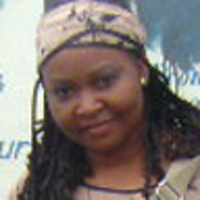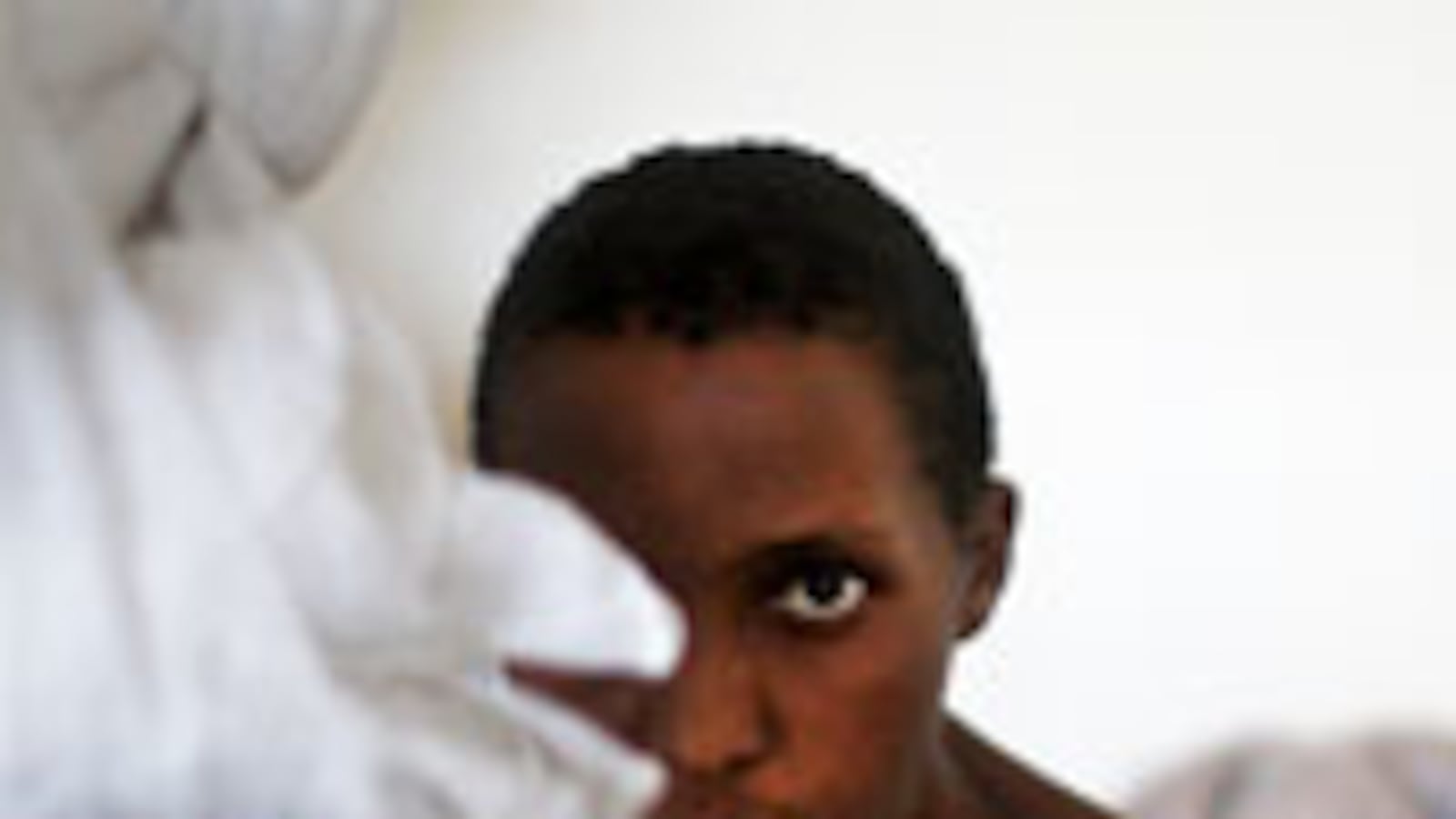
In my village of Baraka, isolated in the mountains of the eastern Democratic Republic of Congo, women gather at the Club d’Écoute (Listening Club) to talk, discussing controversial political and social issues. The conversation, transmitted live on local radio, is conducted in Kibembe, the language widely spoken in Baraka.
During one recent debate, Tosha, a cabbage-seller, shared news she had heard on the radio: The largest United Nations peacekeeping mission in the world has changed it name from MONUC (The United Nations Mission in Congo) to MONUSC (The United Nations Mission for the Stabilization of Congo). Well, it does not matter to her, she said, if the mission has changed its name or mandate. She is more concerned about the colostomy bag she carries everyday containing her urine and bowel movements.
After Tosha was gang raped by government soldiers, they lit a fire in her vagina. She knows her rapists. They are former rebels from the Congrès National pour la Défense du Peuple (CNDP), a rebel group brought into the national army during a joint United Nations, Congolese, and Rwanda military operation launched last year, Operation Kimia II.
But another member of the Listening Club, Vumilia, disagreed. She told us the presence of international organizations has improved her life. Four years ago her son Jumaa was abducted by the Mai Mai rebel group and forced to join its ranks. MONUC demobilized her son and brought him home, though he is so devastated by his experiences that he is unable to live a normal life.
Vumilia said she was shocked to hear the Congolese government had asked the UN to leave the country by the rainy season of 2011. There is still no security in her village and rebels continue to loot and kill her relatives.
Across the DRC, as the nation debates the future of the UN mission here, tens of thousands of men, women, and children live in dire conditions: physically ravaged, emotionally terrorized, and financially impoverished. Except for a few fortunate ones, there is no help of any kind. More than 10 years of war have left the country in ruins, and Congolese women and children have been victims of rape on a scale never before seen. Every one of the dozens of armed groups active in this war has used rape as a weapon.
It has been clear since 2008 that U.N. peacekeepers themselves contribute to Congo’s frenzy of sexual assault.
In March 2009, in an attempt to contain rebels’ activities, the Congolese government allowed the Rwandan army, with the support of the United Nations, to collectively expel FDLR rebels from DRC. The FDLR is one of the most prominent Hutu rebel groups, which allegedly committed acts of genocide in Rwanda in the early-1990s.
The UN launched this offensive believing its participation would protect civilians and human rights. Instead, a new wave of horrific violence broke out. As a result, MONUC was criticised by numerous prestigious human rights organizations. "MONUC's continued willingness to provide support for such abusive military operations implicates them in violations of the laws of war,” wrote Human Rights Watch.
But it has been clear since 2008 that U.N. peacekeepers themselves contribute to Congo’s frenzy of sexual assault. The U.N. admitted 150 allegations of sexual abuse were reported committed by its peacekeepers from Uruguay, Nepal, Pakistan, South Africa, Tunisia, and Morocco while stationed in Congo. There are likely hundreds more such cases that will never be reported. Peacekeeper commanders allegedly resisted measures to curb such abuses. The UN Secretary-General announced there was “clear evidence that acts of gross misconduct have taken place.”
Given this background, it may be that my government is analyzing the UN presence in these terms: A multi-million dollar UN-peace keeping operation has been in Congo for 10 years with more than 22,000 officers. How can it be that the number of civilians dying and in extreme need is still rising? How come Congo is home to the worst humanitarian crisis in the world since the Second World War?
Clearly, the United Nations peacekeeping force is not effective. A change is needed.
There is urgent need to focus on the protection of civilians by fighting Congo’s culture of impunity toward law-breaking. There should be absolutely no tolerance for those responsible for sex crimes.
The illegal exploitation of minerals is one of the major disruptive sources of the conflict. Many believe Congo is cursed with its rich natural resources. The exploitation of those resources needs to be done legally and peacefully.
At the most basic level, we need to restore Congo by investing in the country’s civilians, not just its army. Proceeds from mining should fund social projects such as schools and hospitals.
I believe change will come from the ground up. The fact that the Congolese people survived so many hardships shows our strong will to live in a peaceful society. We want to help ourselves, but without security, it will not work.
Right now it is evident that the Congolese government and the UN have failed to provide basis security to Tosha, Jumaa and thousands of others. If a state is failing to protect its citizens against such crimes and atrocities, then the international community can be justified in intervening. In the globalised world that we live in today, instability and human insecurity easily cross borders, and inaction may lead to more costly interventions down the line.
One of the goals of the Club d’Ecoute is to "speak out." Though this network is still at the ground level, it provides some form of relief for frustrated villagers.
At each closing of these gatherings, women raise their voices to sing and pray for hope, which may come one day. God works in miraculous ways!
Annie Rashidi-Mulumba is a consultant on human rights for the United Nations, focusing on refugees in West Africa. She is a board member of Groupe Lotus, a nonprofit that serves war victims in the northeastern part of Congo.






